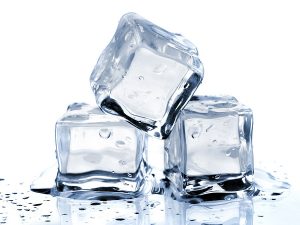#ThursdayThoughts
As promised, each Thursday, we will now offer you a piece of educational, science, or research related information. The purpose of our #ThursdayThoughts post is to share with you fact-based content that can enlighten and assist you on your fertility journey. Enjoy our post! Helping to Create New Beginnings….
Fertility Preservation and Ovarian Reserve Testing
As women age, egg quality and quantity decline until natural menopause is reached. This diminishment of ovarian reserve can result in difficulty achieving and carrying a pregnancy.
Some women may choose to mitigate their chances for conceiving by freezing eggs while they still have a good ovarian reserve. The process of egg freezing requires ovarian stimulation with injectable medication for approximately 10 days and a subsequent egg retrieval procedure. An egg retrieval is a minor surgical procedure performed under anesthesia; pain subsequent to the procedure is typically very well controlled with over-the-counter ibuprofen or Tylenol. In addition, most people can return to work the next day. Although freezing eggs is meant to preserve fertility, unfortunately there is no guarantee of success. The chances of live birth depend on the number and quality of the harvested eggs.
Women who are interested in fertility preservation are often curious as to what their current ‘fertility potential’ is, and for how long they will remain fertile. Oftentimes, fertility testing such as ultrasound and bloodwork can help determine if there is an issue with egg quality or quantity. However, fertility testing cannot accurately predict a woman’s natural ability to get pregnant. As such, it also cannot be used to determine for how long a particular woman will remain fertile. In other words, ovarian reserve testing can be used to predict how successful a patient will be with egg freezing and how many eggs she may expect to get in one cycle, but it cannot be used to determine whether that same woman will have trouble getting pregnant naturally if she tries.
Since fertility testing has limited usefulness in the case of predicting natural fecundity, there is no consensus regarding which women would benefit the most from fertility preservation, and at what age they should freeze their eggs. Women should consider freezing eggs prior to the marked decline in fertility potential that typically occurs in their late 30s and 40s. If they are ready to build a family, women can consider proceeding with fertility treatment rather than egg freezing.
Fertility preservation is rarely covered by insurance. Many fertility centers will offer financing plans and discounted self-pay cycles to help women achieve their family building goals. If you are interested in learning more about fertility preservation, please schedule a consultation with one of our physicians at the Fertility Institute of Hawaii 808-545-2800, or visit our website https://www.ivfcenterhawaii.com/ for more information.
